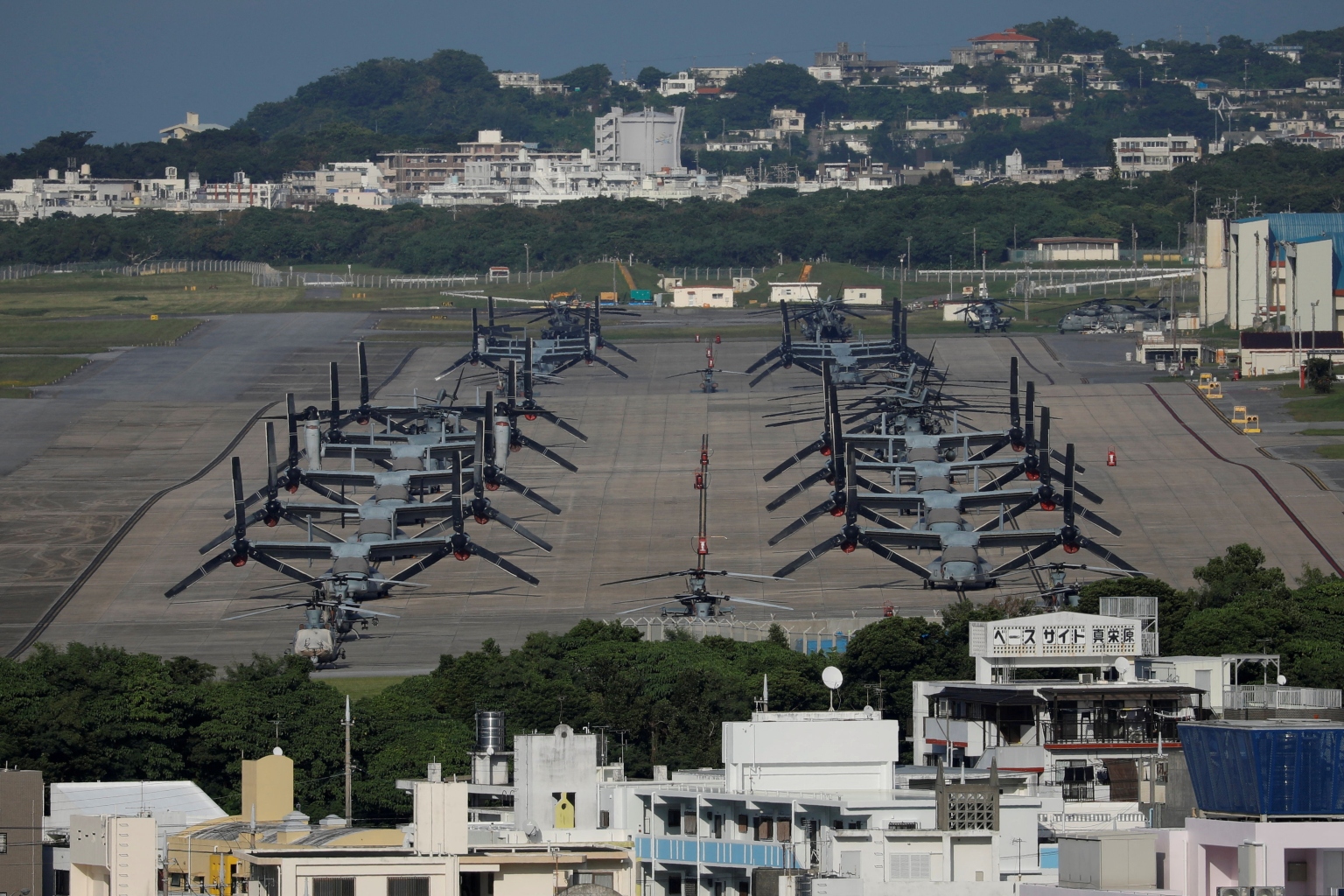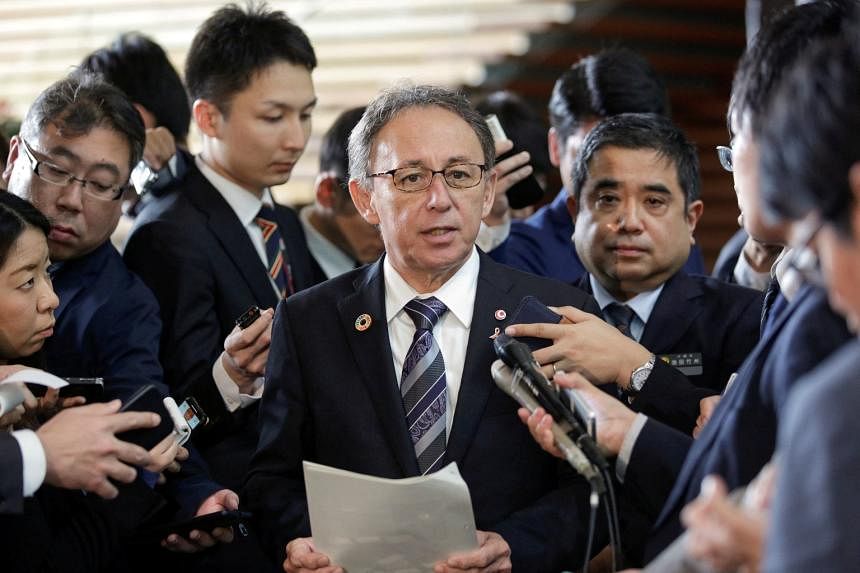TOKYO – Incumbent Okinawa Governor Denny Tamaki won handily at an election on Sunday, exit polls said, in a rebuke to Tokyo’s plans to relocate a United States Marine Corps base within the prefecture’s main island.
The 62-year-old Mr Tamaki, who was supported by a coalition of opposition parties, secured more than 50 per cent of the votes cast, an exit poll by public broadcaster NHK showed.
He clinched another four years as leader of Japan’s south-western prefecture, a chain of about 160 islands nearest to the potential theatre of conflict if China were to invade Taiwan.
NHK’s exit poll showed ruling Liberal Democratic Party (LDP)-backed opponent Atsushi Sakima, 58, secured less than 40 per cent. A distant third was former Lower House lawmaker Mikio Shimoji, 61.
The final results are due by Monday morning as the counting of ballots cast in the typhoon-drenched election continues, while “very strong” Typhoon Muifa brings violent waves and winds to parts of Okinawa.
In his victory speech, Mr Tamaki emphasised that he would work to bolster the social safety net for the poor, highlighting his recognition that voters are facing bread-and-butter concerns arising from the Covid-19 economic slump.
Mr Tamaki heads All Okinawa, a coalition opposed to Tokyo’s planned relocation of the US Marine base from Futenma in overcrowded, urban Ginowan to remote Henoko district in Nago. The coalition wants the base to be moved out of Okinawa entirely.
Locals have long been frustrated by the central government’s brush-off of their frustrations: Their daily reality involves noise pollution from US fighter jets, while US servicemen have been blamed for crimes and fatal accidents.
Activists also argue that by hosting a disproportionate number of bases, Okinawa is basically a sitting duck should aggressors decide to launch an attack.
The central government in Tokyo, a three-hour flight from Okinawa's prefectural capital Naha, argues that the presence of US bases is necessary, both for deterrence and for immediate response in the event of conflict.
Despite decades-long pledges by the central government to reduce the base-hosting burden on Okinawa, the prefecture still hosts 70 per cent of all US bases in Japan despite having just 0.6 per cent of the nation’s land area.
It is also Japan’s poorest region, with the lowest income per capita and highest child poverty rate among all 47 prefectures.
Mr Tamaki’s re-election will likely result in a continuing impasse in the Futenma base relocation, which has been in the works since 1996. Construction has been progressing - but slowly - amid administrative battles and civil lawsuits. Activists also hold daily protests near the planned site.
In the last polls in 2018, Mr Tamaki was elected with 80,000 more votes than Mr Sakima, whose campaign this year was overshadowed by revelations of his ties with the controversial Unification Church.
Sunday’s ballot was the first major election after Prime Minister Fumio Kishida reshuffled his Cabinet last month amid deepening public anger over the LDP’s ties to the Unification Church, which is labelled a “cult” by several countries.
Momentum had appeared to be with the LDP after its candidates won in four mayoral contests in Nago, Nanjo, Ishigaki and Okinawa City. All Okinawa’s defeat in Nago was perhaps the most damaging as it is home to the Henoko base.
But the LDP candidate was narrowly defeated by 0.5 percentage points in the Upper House election in July, in a loss that presaged Mr Tamaki’s victory on Sunday.
This year marks 50 years since sovereignty over Okinawa, the bloodiest battleground in World War II, was returned by the US to Japan.
Tokyo allows the US to maintain military bases in Okinawa - built during the post-war American occupation - in exchange for its commitment to defend Japan from external attacks.
Okinawans re-elected Mr Tamaki in a rejection of Tokyo and Mr Kishida’s LDP, despite being on the front lines should conflict with China erupt over Taiwan.

The Okinawan island Yonaguni, Japan’s south-westernmost point, is just 110km from Taiwan’s east coast.
Okinawa also administers the Senkaku islets that were nationalised by Japan 10 years ago on Sunday, but which China - which calls them Diaoyu - has asserted claims over since the 1970s. These islets are located 170km from Taiwan.
In an unprecedented move, China last month launched five missiles into the sea near Okinawa, within Japan’s exclusive economic zone, during military exercises around Taiwan.
While the US base relocation was the elephant in the room, the hustings had focused largely on Okinawa’s economic woes, with pledges from all candidates to help the poor and disadvantaged. The tropical island chain, which is heavily reliant on tourism, has been hard-hit by the Covid-19 pandemic.
The Cabinet Office has set a budget of 279.8 billion yen (S$2.7 billion) for the next fiscal year for Okinawan development, the lowest figure in history. Domestic media had cited ruling lawmakers as saying that offering anything more than 300 billion yen would effectively help Mr Tamaki win the election.


